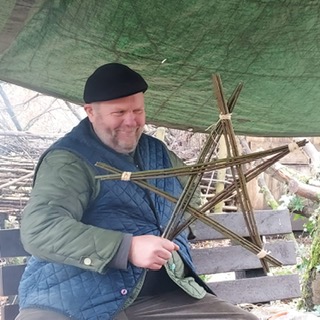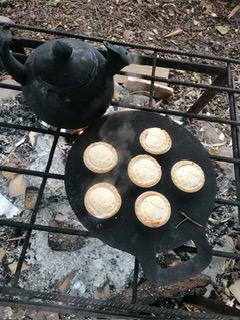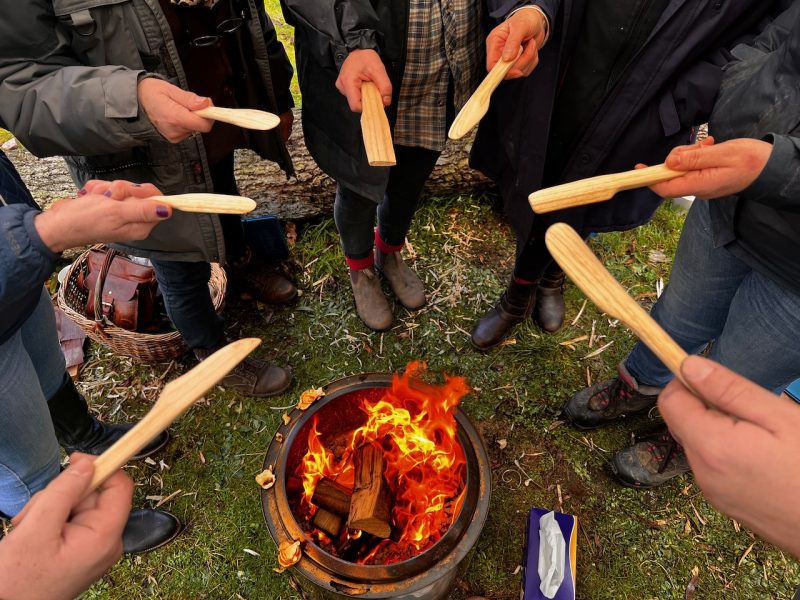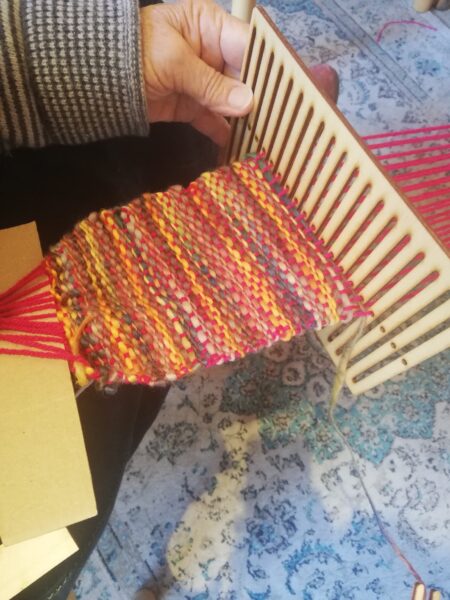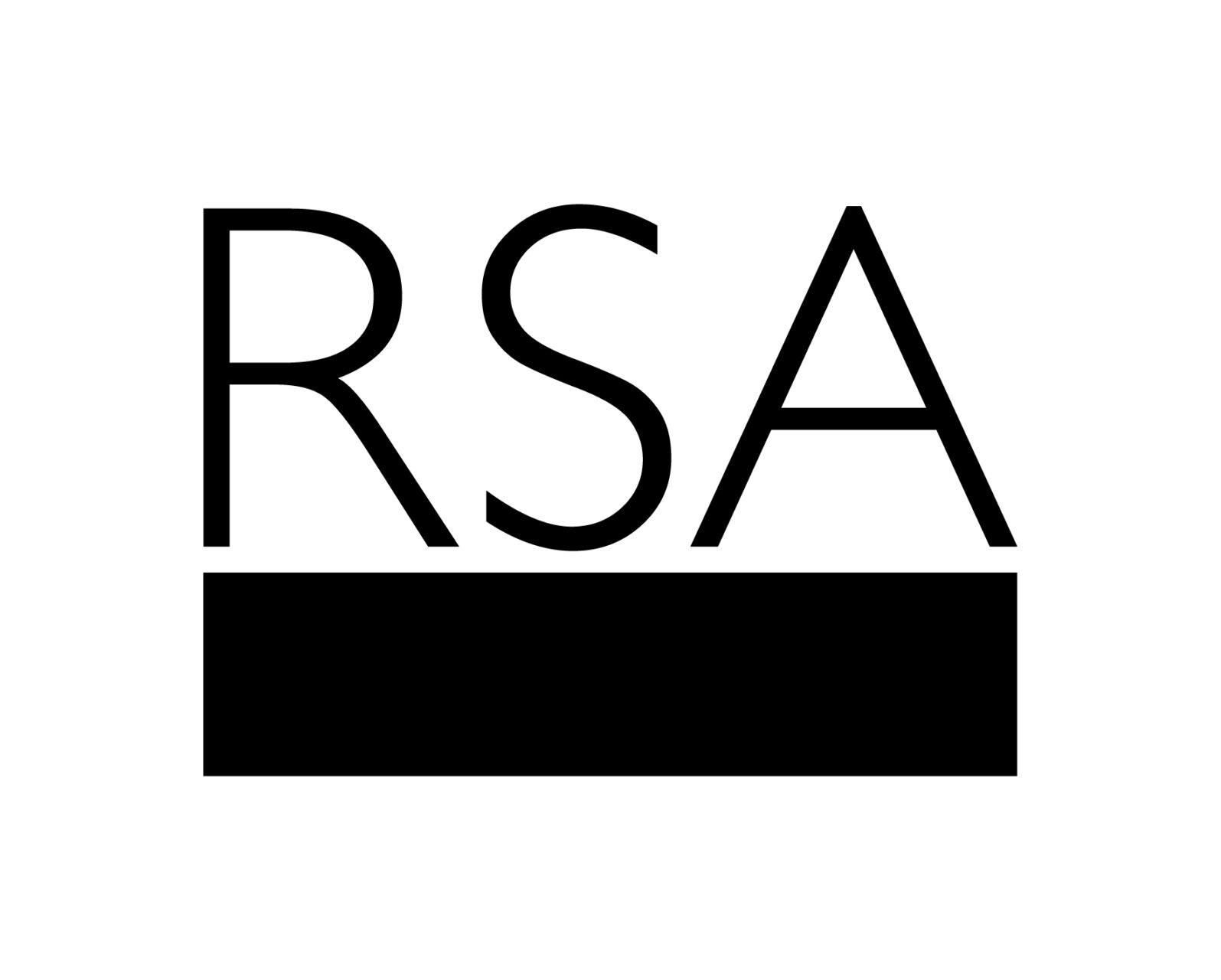
Following news of our RSA Catalyst Award we set about identifying potential sites in the valleys on the edge of the National Park, settling on the Glantawe Riverside Centre, in Pontardawe, where the team there have created a permaculture forest garden on the banks of the river Tawe. We are really pleased to be partnering with the local GP practice through Red Kite Health Ltd and Monika, one their pharmacists, supporting people with chronic pain.
We invited a wonderful team of local artisans to join us, facilitated by Clare Clark, an occupational therapist with a wealth of experience and a special interest in animal-assisted therapy. Matt Gorst, a previous participant of the Making Well course, joined Clare, bringing with him the ethos and knowledge gained from the Llanfellte Making well community, together with his renowned cooking skills. Laura Thomas, an award-winning local Woven Textile Artist arrived with bundles of wool and was joined by Andrew Price, a Bushcraft Practitioner who has been pioneering this work on the Gower. Finally, Sarah Bryan, a Glantawe Riverside Permaculture Practitioner gave us valuable local knowledge of the site from her time developing the garden and volunteering with other groups there. The programme was carried out in the enclosed garden of the Glantawe Riverside Centre, based around a fire pit, round house, poly tunnel and a garden area with raised beds and two ponds.
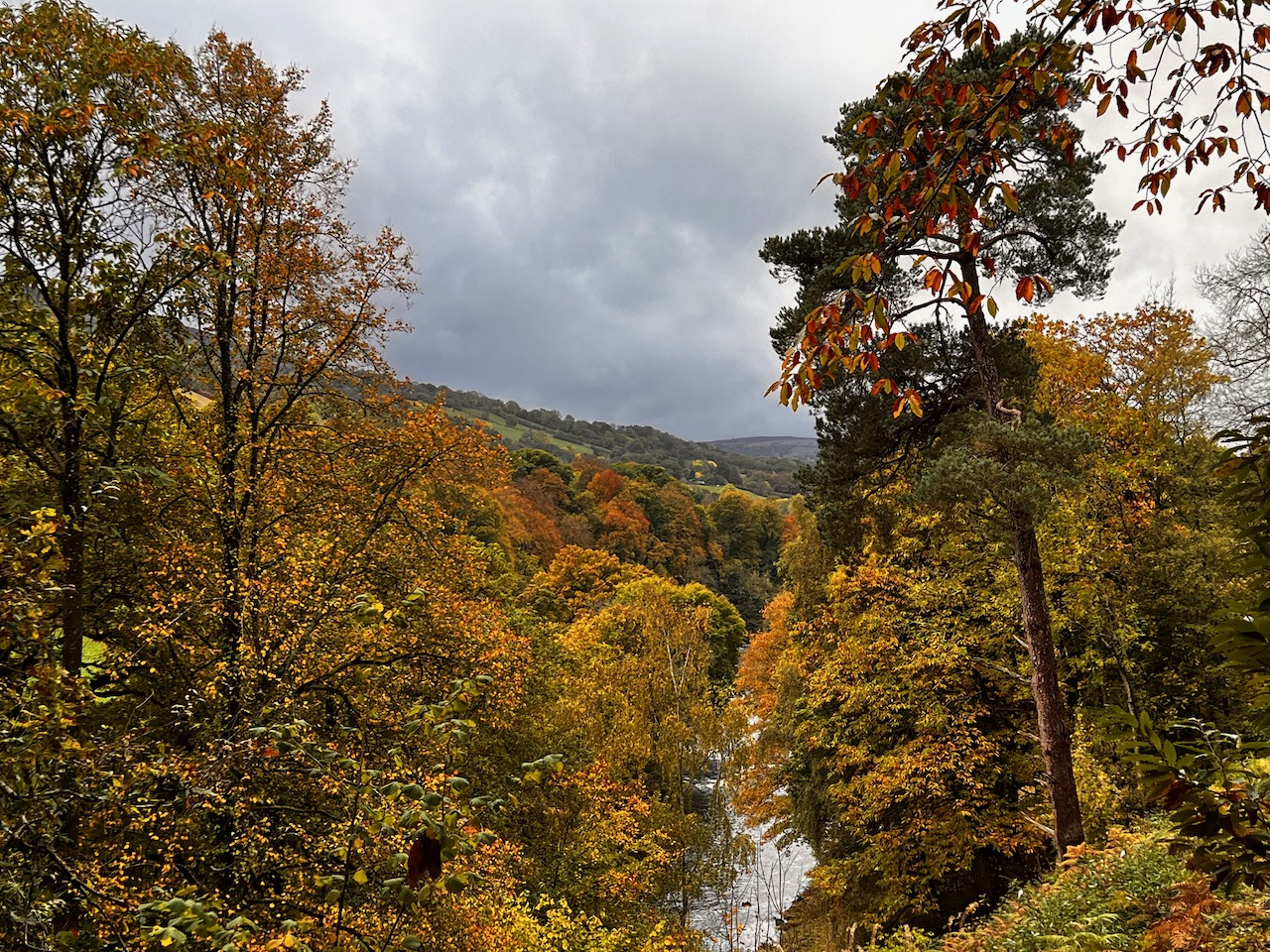
The bushcraft sessions started with making fire which increased the confidence of all the group. The next session introduced knife safety and carving principles. The week after was making friendship bracelets out of raffia as a demonstration of creating strong cord to use in a bushcraft situation. It also involved working in pairs. The following session involved foraging and making bannock bread and teas. One of the participants who had been afraid of cooking, was encouraged to cook over the open fire and thoroughly enjoyed the session baking his bread on the fire. The next week was axe carving to make spatulas, beginning with a copiced tree trunk and working through the process. The next week progressed to spoon carving and the final session before Christmas focused on making stars out of copiced willow.
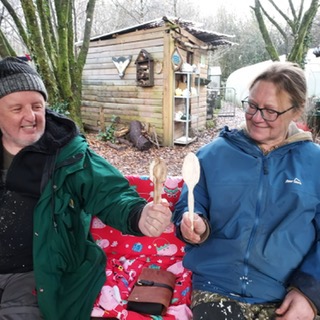
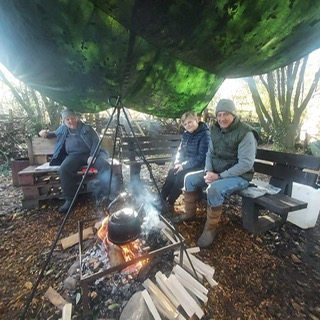
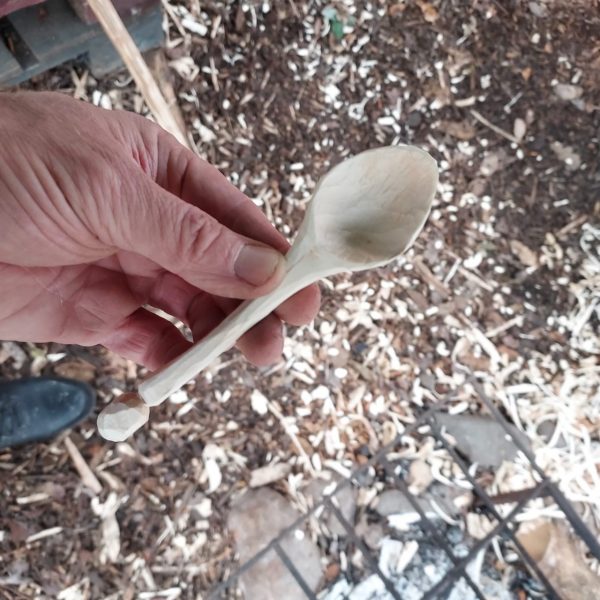
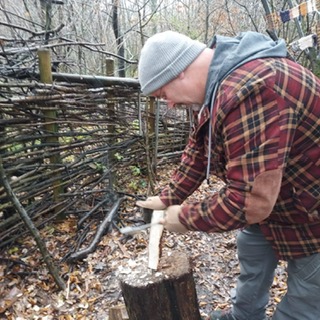
The Weaving sessions focusing on small weaving on looms with the size of weaving increasing throughout the programme, with larger looms and a shuttle used to explore different textures. The sessions then went on to rectangular objects such as tiles and books and Laura introduced weaving on the diagonal. The following session utilised weaving on drift wood and encouraged stepping into ‘negative capability’ by working with colours you would not normally choose. The next session explored peg looming and making sit mats for the sit spots out of sheep fleece. The penultimate session involved weaving outside within in the trees around the garden as this was the only fine day weather wise. In the last session, people were able to revisit their preferred weaving style.
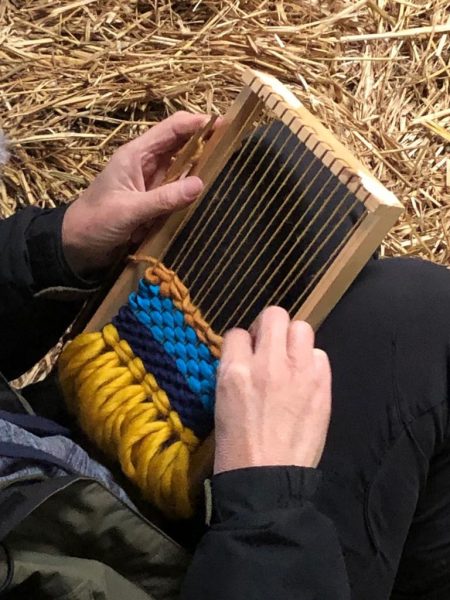
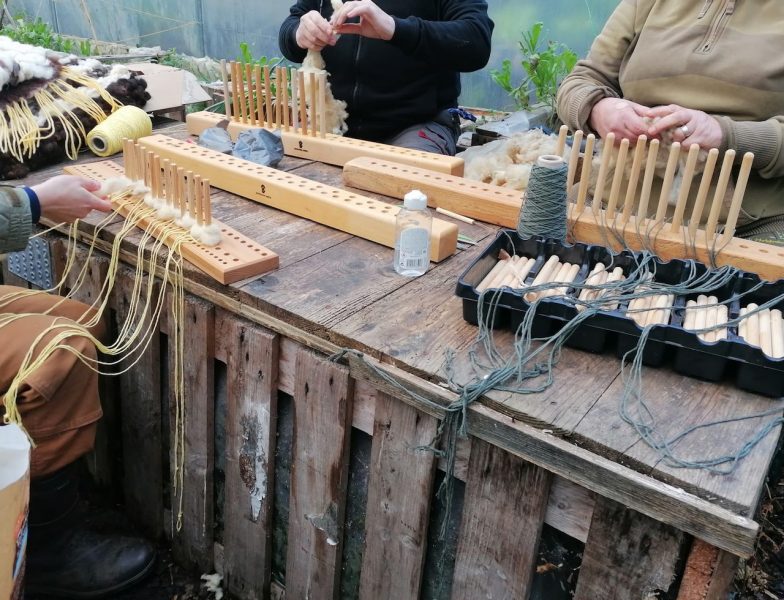
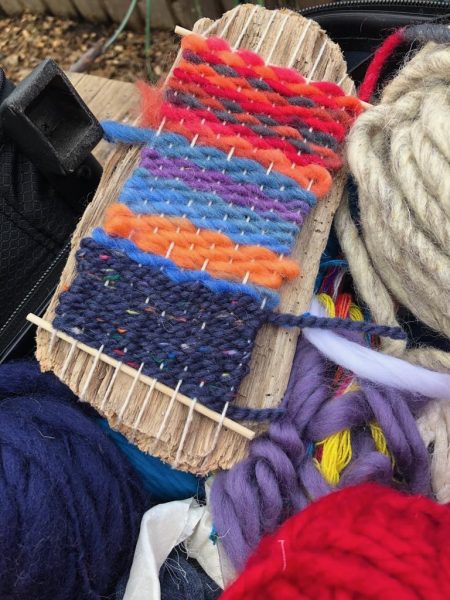
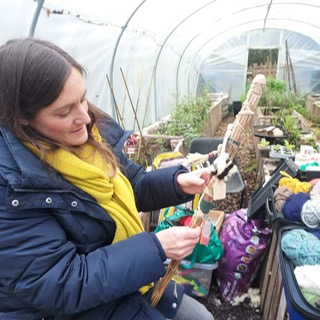
These first eight sessions have helped us to consolidate a new team of four fantastic local artisans, who have learned to apply their skills within the framework of a Making Well course. We have designed a toolkit based on a set of cards to guide future Making Well communities based on our Good Practice Guidelines and we are learning how to communicate the course to local general practices and mental health teams. We have created the start of a new pipeline of volunteers to support future courses and most importantly, the participants who completed the course have gained stronger social connections and experienced a time of personal growth, each better able to address illness, disability, social isolation, or interpersonal strife. Participants reported feeling calm, focused, motivated, and have gained in confidence by learning new skills and overcoming their fears. They have each been delighted by a different craft – the wool, wood and willow each called to people in different ways – and would like to volunteer on future courses.
